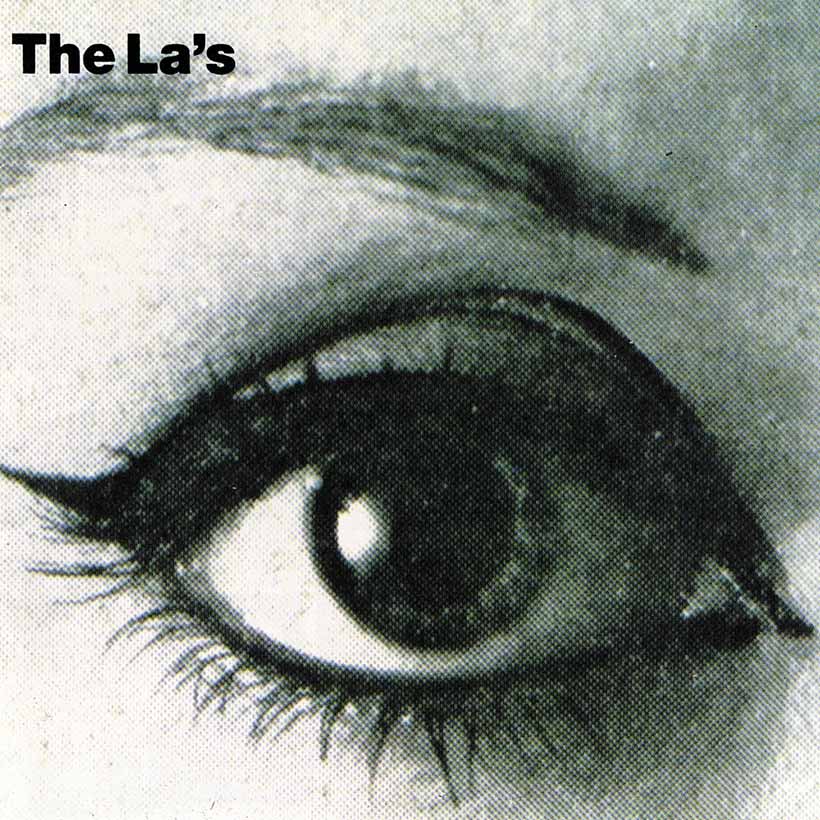Liverpool’s finest track-suited indie icons The La’s celebrate three decades of their solitary debut album this week, a tale of career ending perfectionism, genre inspiring riffs, timeless songwriting and a unique tortured artist in the guise of Lee Mavers.
The sound was anti-Madchester swapping the thumping pilled-up basements on the other end of the M62 for ballsy, melodic prowess. It resonated with the troubled Liverpool youth from Speke, to Seaforth and Southport and beyond. For the working class, thatcher-ravaged Merseyside it was an album that went beyond its singles and one whose intricacies and legend still inspire scouse musicians today.
The debut was released on October 1st 1990 via London based Go! Discs. The La’s got their name from the Scouse slang for the word “lads” with an early hectic sound akin to Captain Beefheart or The Fall. Founding member Mike Badger left in 1987 leaving enigmatic frontman Lee Mavers in charge of the group with John Power on bass and mouth watering pool of quality demos to move forward with.
Yet the recording of their debut was long, arduous and full of frustration for all parties involved. Mavers was obsessed with improving and changing the sound of the tracks to ring out the emotion inspired by the early demos. This obsession be it a stubborn, stupid or stupendous desire for greatness resulted in sessions with acclaimed producers John Leckie, Bob Andrews, Mike Hedges and new wave icon Steve Lillywhite hitting brick walls and getting nowhere.
A look into the band’s previous members and 24 listed members between 1983 and 1992 (including future Oasis dummer Chris Sharrock) shines a light into a tormented drive for their debut to be the best and nothing else.
Frustration grew too much for the label as the Lillywhite recordings were honed together and forcibly released in 1990. Mavers intensely disgruntled instantly condemned the release, his vision was left unfinished in his eyes and seemingly would never be complete in the gaze of his never-ending perfectionism.
“What’s right with it? It’s out of tune, out of time… they’ve ruined good songs. I’m broken-hearted, la… It’s a bag of shit” Mavers snarled in an interview with Stuart Maconie to NME in 1990.
After a brief promotion of the album, bassist John Power left the group in 1991 to form Merseyside hotshots Cast as The La’s stepped back from touring and rehearsing altogether in 1992. Mavers returned home to Merseyside and departed from the public eye appearing only for a handful of reunion shows and acoustic spots in resultant decades; his story is a fable of the levels of perfectionism and expectation we set on ourselves and how it can cause conflict to breaking point.
Yet what is the album that the group left behind for us and why has it garnered so much respect?
First impressions pinpoint a bluesy feel with chord and riffs that suit a Rolling Stones record. Yet with a growing influence of skiffle and psychedelia the group proved unafraid to reach into the pop bracket. A sense of boisterous mischief yet bittersweet youthful optimism attaches itself to the album alongside a bleak picture of a city of culture in pain amongst battle-scarred late 80s Liverpool.
– – –
– – –
‘Timeless Melody’ soars above with oscillating guitar tones as regards to Mavers’ abrasiveness and contempt for recording the album the track is far from belligerent as it transcends its bleak beginning into a cosmic early Britpop precursor.
– – –
– – –
The introduction to ‘There She Goes’ is iconic. It’s an indie singalong love song anthem that never fails to bring a smile as it is warm and inviting, the tone is optimistic and whimsical, the subject a love that just can’t escape your mind. The short and sweet pop masterpiece invites you back home with open arms at the steps of Lime Street. A product of Mavers’ self-imposed constraints the track gets in and gets out quickly leaving the listener longing for more as the sweet hook breezes through.
‘Doledrum’ and ‘Liberty Ship’ shuffle by with a skiffle feel as blues vibes return with the short and snappy ‘Feelin’. ‘Freedom Song’ trudges like a dirty dock road pub band playing a lamenting dirge of misfortune before necking its pint and belting out the troublesome, hard-rocking ‘Failure’.
‘Looking Glass’ is a chaotic yet majestic crescendo to close the album as the building walls of melody, sweeping guitars and distant calls immerse you like a walk home in the rain in a Mersey storm. Mavers searches life’s questions with his innermost demons foreboding with the lyrics “everything must pass, the change is cast.” It’s one of the greatest songs to come out of Liverpool and sets out everything The La’s have come to prove with raw majesty within the sound and immaculate songwriting to-go. Turn it up loud and let it take over your soul.
The calibre within the quality of the album simply adds to the legend of Mavers as from fans looking in towards his paralysing perfectionism; you have to ask what else did he have left to give? Or is the mystique behind a troubled visionary never living up to his own expectations and not realising his quality actually the legacy of the album? Clash went out to ask bands from Merseyside today how The La’s help define the 2020 scouse identity, where Mavers sits amongst the best of them all and how the debut helps emerging acts establish their sound.
Kieran Shudall of indie triumphs Circa Waves is a massive fan of the album as we discussed the intricacies within the songwriting and the melodies which make it stay so important 30 years on: “I’ve always been attracted to ‘I Can’t Sleep’, it’s got a really incredible counter-melody with the two guitars constantly playing off each other” he said.
“The track epitomises the genius of Lee Mavers, he makes you think that he is writing a simple pop tune and it’s actually really clever and complex. His voice is not particularly outstanding but the melodies really push themselves into you in a magical way” he adds.
– – –
– – –
A proud Liverpudlian Shudall confides in the album whilst on the road to remind him of home: “The album is an itch I have to scratch, if I’m driving in a car on tour its that comforting scouse hug that I miss when I’m touring around Europe or America. They are called The La’s, it’s impossible to have a more scouse name. He [Mavers] is an emblem of Liverpool, if Liverpool was wiped out and there was just videos on Youtube of how explain what Scousers were they’d just have to watch an interview with Lee.”
Yet it is Mavers’ songwriting, artistic ability and eccentricity that impresses Shudall the most: “I’ve heard that he tuned his guitar to the fridge and sellotaped a pasty to the bass drum to make it sound better. His songs are superior to most other songwriters, at the end of the day if you put his songs against others they just win hands down.”
Dan from ethereal outfit Astles signed to Birkenhead’s Eggy Records sees the creativity of The La’s and Mavers as an inspiration for his take on the grandiose Mersey Sound: “It’s just the sheer poetry of writing such a perfect timeless melody and having the audacity to name and base the song around how brilliant the melody is. It’s like having a brilliant painting and naming it ‘the best painting ever.’ That sums up the La’s to me, working class northern charm wit and almost arrogance, tied with a genuine undeniable talent and craft for their art. There’s nothing big or clever about it, but music doesn’t have to be big or clever.”
Andy Power from Liverpool jangly-dream-poppers Spinn was captivated by the album in his teens as the skiffle with a scouse twang feel made him obsessed: “I think the reason why the La’s have held such a respected legacy over time is because of the quality of the songwriting and their motives behind the music. In interviews you can hear how determined they were to capture and create music in the most natural way possible, meaning none of their songs were manufactured or tailored for anyone else making the songs pure from their very core.”
Joe Maddocks of Scouse indie hotshots RATS wants the album played at his wedding and funeral as the honesty of the La’s first caught his ears aged 15: “I loved how they wore tracksuits like me, Arctic Monkeys were big at the time and if you wanted to be in a band you had to wear a leather jacket and have a quiff and I didnt have the hairline or the clobber. It wasn’t about how you looked, it was about how you sounded.”
Maddocks continued to tell a tale of chance meeting with Lee Mavers outside the Cavern Pub after a Monday night open mic: “I opened the door after my set to go for a smoke and it was fking Lee Mavers outside and he saw my first gig. He congratulated me and I sat with him outside asking about all the interviews and having a proper natter with him. I said “how do you play ‘There She Goes’?” and he went “go on I’ll teach you” and there I was getting a guitar lesson from Lee Mavers on Matthew Street outside the Cavern. People were just walking past thinking it was an old fella because he doesn’t look like a rockstar anymore.”
– – –
– – –
Words: Will Whitby
Join us on the ad-free creative social network Vero, as we get under the skin of global cultural happenings. Follow Clash Magazine as we skip merrily between clubs, concerts, interviews and photo shoots. Get backstage sneak peeks, exclusive content and access to Clash Live events and a true view into our world as the fun and games unfold.

